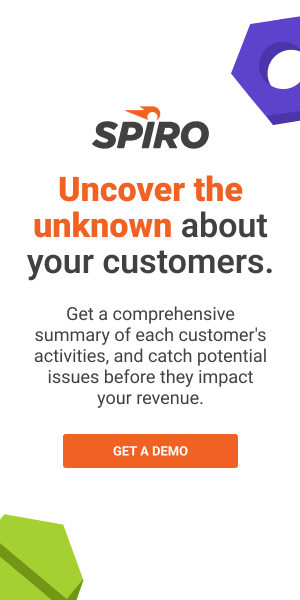Salespeople, When Should You Use Email?
How often do you use email throughout your day? Do you work through full deals via email, or move to a phone call after a set amount of messages? How much is too much? As of 2012, studies found that employees were spending 28% of their day on email. This can’t be the most efficient use of time! As sales reps, we need to be as efficient as possible (which is why we created Spiro), but is email really helping us get ahead?
I think what it comes down to is using email the right way. It is definitely a useful tool, but it needs to be put in its place. I know in my days as a sales rep, I would show up to work after a few days off and have loads of emails to sort through. This would eat up at least an hour of my time. Then, throughout the day, I would receive messages about every 15 minutes. If I attended to my inbox every time I got a notification, I wouldn’t get much else done. This is how many people fall into the trap of email, which siphons up their productivity.
Instead, I suggest you draw boundaries for when you use email and what you use it for.
What Is Email For?
1. Short Concise Messages. Email is great for sending short messages that are non-urgent. However, studies have found that it is difficult to communicate emotions and personality properly through an email, so topics should be factual, informative and straight-forward. As Dale Carnegie never said, “it’s very hard to close a deal over email.”
2. First Contact. You can use email when making a first contact with a prospect. An email gives prospects a heads up that you will be contacting them and gives you the opportunity to tell them why. It is also less intrusive then a call and is more likely to be read, than the likelihood of a cold call being answered.
3. Raise Awareness. Even if the recipient does not respond, your email will get them more familiar with your name and company. I used to send emails to all my prospects before calling and had several say that they recognized my company name as a result, and so took my call. (Some applications, like Spiro, send you reminders of who to email, and provide templates on what to say. That makes emailing easy!)
Even though email is great for first touches and short messages, it really should be kept to a limit of 2 or 3 messages. When it’s really time to get to business, I recommend picking up the phone.
What Email is NOT for!
1. Emotionally Charged Content. Now we have covered what email is for, so let’s touch on what it is not for. As mentioned above, email doesn’t convey emotions often times, so messages that could be misconstrued should be handled via phone or in person.
2. Working Out Deals. Additionally, email is efficient for reaching a wide range of people. However, when trying to work out the details of a sale, a call can clear up an issue that may take 10 emails to clarify. Sometimes details just need to be talked out. One misunderstood email can break the deal, so a phone call gives you more control.
3. Important Topics. If a topic is important due to urgency, sensitive information or personal content, it is respectful to approach it in person.
4. Task Management. Lastly, for goodness sakes, email is not for task management! Imagine this, you go to insert a task and see you have new messages, so you check them. Then you go to mark off a finished task and you have more emails, so you check them again. This can quickly take up far too much of your time. A dedicated task management tool will allow you to stay organized and focused, and then return to email on your terms.
So take control over your day and your inbox. Don’t let new messages send you on a wild goose chase that side tracks your day. Set aside time to check your mail, and then take care of the other tasks you’d like to accomplish. Lastly, make mindful decisions about how you communicate instead of just resorting to email as a “one-size fits all” solution. By putting email in its rightful place, you can truly optimize your day and improve your relationships.
Photo courtesy of Flickr user Dave Powell.

